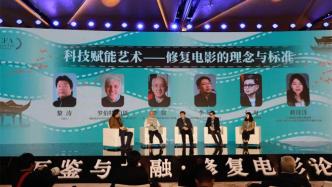
On March 4th, "Mutual Learning and Integration - Tribute to Classics·Film Restoration Forum" was held in Suzhou, Jiangsu. Before the official opening of the forum, the China Film Archive, the Propaganda Department of the Suzhou Municipal Party Committee, and Suzhou Radio and Television Media Group (Suzhou Radio and Television Headquarters) jointly signed an agreement on the project of the Jiangnan Branch of the China Film Archive and announced the launch of the project.
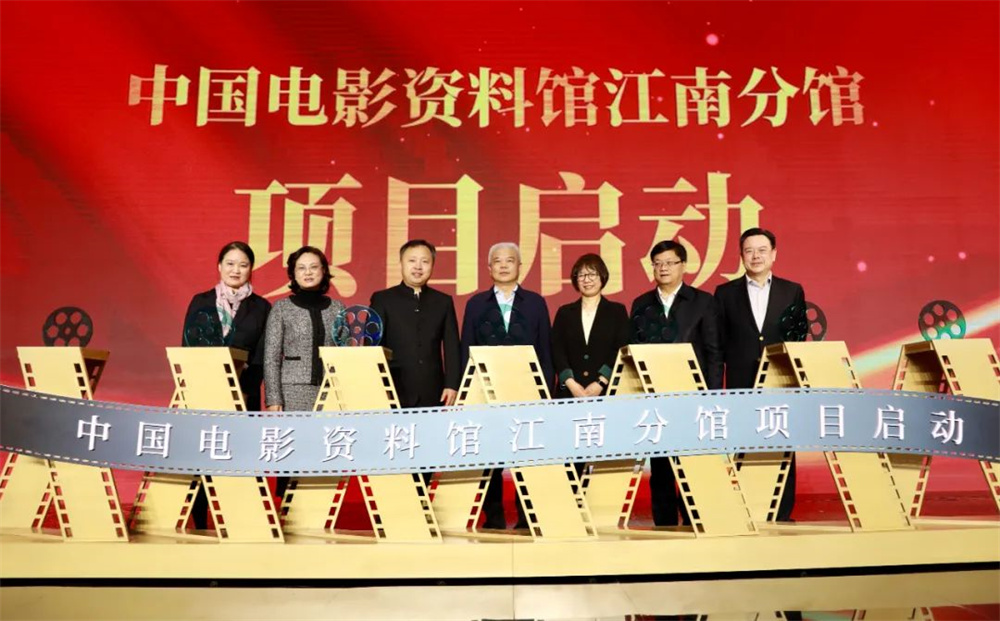
Project launch ceremony
According to reports, the Jiangnan branch of the China Film Archive will launch a series of activities in the near future, and many classic films will meet the audience in the series of activities. The Jiangnan branch of the China Film Archive will also be completed within this year. In the future, the Jiangnan branch will set up a film derivative research and development center, a film archive and cultural and creative exhibition center, and a film creation talent training base, and will carry out regular screenings of art films, as well as popularization of film art, film screenings, cultural and creative development, digital A series of activities such as restoration and teaching creation will also organize regular academic exchanges and strengthen cooperation in the field of culture and art.
Sun Xianghui, curator of the China Film Archive and director of the China Film Art Research Center, said, "Civilization is enriched by mutual learning, and technology is developed by integration. In this forum, we invited experts and scholars from home and abroad to share and discuss the relationship between film and television. The practical experience and innovative achievements related to restoration endow the Tribute to Classics·International Restoration Film Festival and Restoration Film Forum with new cultural coordinates and spiritual heights."
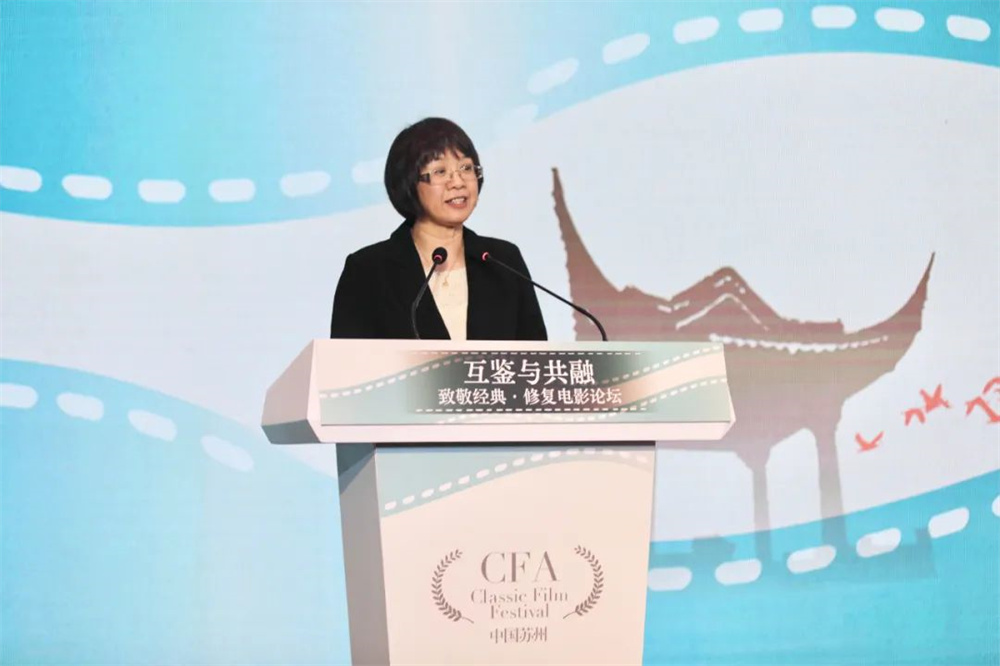
Sun Xianghui, curator of China Film Archive and director of China Film Art Research Center
"Six Chronicles of Su Garden" is the first series of documentaries about Suzhou gardens in my country, which introduces the simplicity and elegance of Suzhou gardens from a humanistic perspective. On the Restoration Forum, the 4K restoration clip of "The Six Chronicles of Su Garden" was screened publicly for the first time.
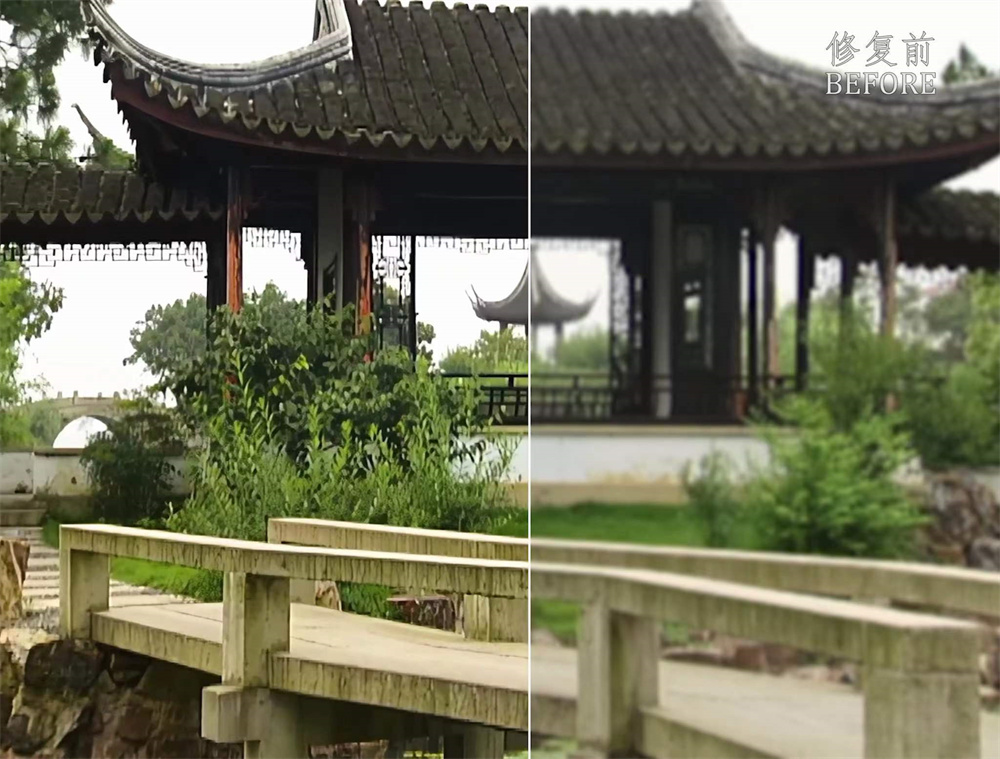
Comparison of 4K restored fragments of "The Six Periods of Su Garden" with the original film
The forum consists of two units: "Mutual Learning: Film Restoration as a Carrier of Cultural Exchange" and "Inclusiveness: Integration and Innovation of Image Restoration". Discussions and exchanges were conducted on hot topics such as efficiency, concept standards, and technological innovation integration.
"Movie City Master" Restoration of movies has become an important carrier of cultural exchanges
In the unit of "Mutual Learning: Restoring Film as a Carrier of Cultural Exchange", Zuo Heng, a researcher at the China Film Art Research Center, Ding Junjie, director of the National Advertising Research Institute, Fan Xiaoqing, honorary chairman of the Jiangsu Writers Association, and Tan Yi, director of the Bologna Film Archive Gian Luca Farinelli, co-founder of the film festival, Gerald Dujosson, curator of the classic section of the Cannes International Film Festival, Xie Weilie, program planner of the Hong Kong International Film Festival, and Sha Dan, curator of the Beijing International Film Festival, gave keynote speeches speech. They extensively discussed the role of film restoration in shaping urban culture, and introduced the selection criteria and curatorial considerations of international film festivals for restored films.
Zuo Heng gave an introduction titled "The Cultural Role of "Movie City Lord"", "Chinese films have traveled a long way for more than a hundred years, and the earliest existing national films are 101 years old. Those vicissitudes and mottled films need both Arranging a place to store and preserve his body also needs to find a space for contemplation and sublimation of his soul. For the former, the Beijing and Xi’an libraries of the China Film Archive have a history of more than half a century. For the latter, Chinese filmmakers Just started. Like a fate, the film came to Suzhou in such a form. The selection of the time and space nodes of the Jiangnan branch, the cultural managers who preside over it, and the filmmakers participating in it are no less than the ancients in building and operating a place. When gardening, put your heart and soul into it.”
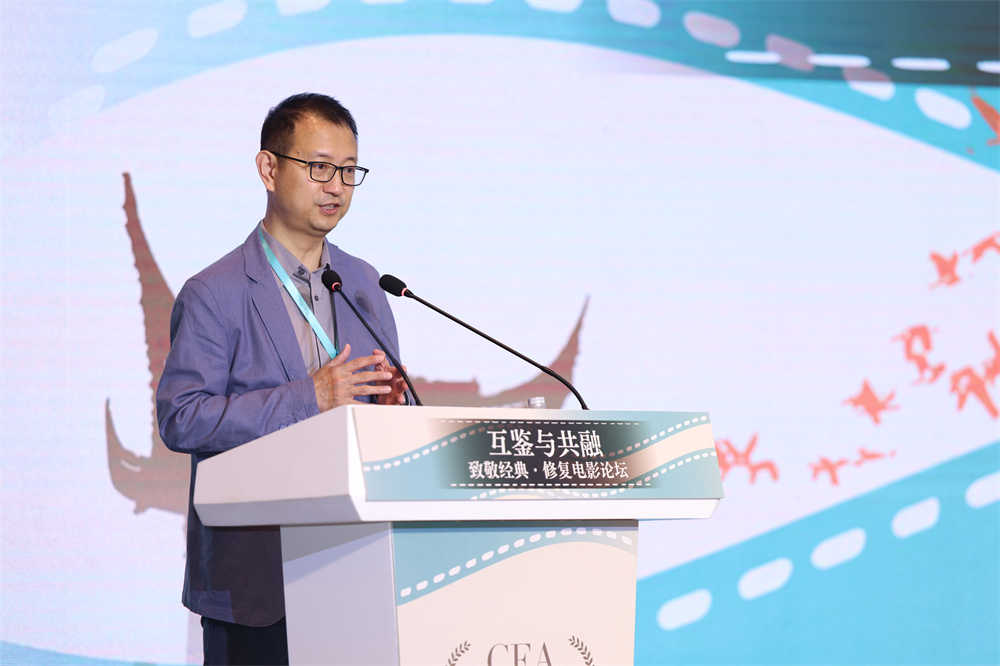
Zuo Heng, a researcher at the China Film Art Research Center
He said that with the popularization of big data, AI and other technologies, the process and results of image restoration will gradually become a daily cultural service for the city, and the technology may also help human emotions and psychology, and cultivate a cultural culture for the city. New citizens of depth and temperature.
"At the moment of the construction of modern cultural ecology in Chinese cities, the collection, restoration, and performance of images in various places are like spring breeze turning into rain, quietly moistening things. And this story about China and movies should be narrated and even sung by those who are familiar with cities and culture Chanting. The film city owner is the main body undertaking this undertaking.”
Ding Junjie pointed out in his speech that culture is the biggest real estate of a city. How to avoid "one thousand cities"? Culture can make a city's identity particularly distinct, it can highlight a city's pattern, and it can make a city have infinite charm. "Film restoration is an event in the cultural sense. The city of Suzhou can put film restoration in its own city operation and in the survival and development of its own city, which is enough to show that Suzhou is a cultural event. It may have taken a step earlier and done a little more than other cities.”
Fan Xiaoqing's speech explained the Jiangnan culture in combination with "The Six Records of Su Garden". She believes that universality and permeability are the most important characteristics of Jiangnan culture, "It permeates every aspect and corner of Jiangnan life, and each of us can feel the existence and influence of Jiangnan culture from the most common places. No matter Whether they are dignitaries, talented scholars or ordinary people, they are all integrated with Jiangnan culture. So many times, we say that the life of Jiangnan people is culture, and culture is the life of Jiangnan people. Jiangnan culture is elegant, down-to-earth, and full of fireworks gas."
Gian Luca Farinelli is director of the Bologna Film Archive and co-founder of the Lost Film Festival. In his eyes, the "Recovery and Restoration" unit is the most representative part of the Tanyun Film Festival. The restoration work needs to start with a thorough study of the best existing materials, and must use existing technology as a tool to reproduce a specific film The exact vibe and "taste" of the period in which it was made. "We're not at all interested in restorations that imitate contemporary aesthetics, but we prefer restorations that respect film, the originality and uniqueness of the film material, including its fragility and imperfections."
Mr. Gerald Dujosson is the curator of "Cannes Classics" at the Cannes International Film Festival. He introduced the selection criteria for the Cannes Classics section. The Cannes Classics section receives about 160 films each year. In addition, There are still about 80 documentaries. In the end, there will be 20 to 25 films and 5 to 9 documentaries selected. "The specific number will vary every year, but it will present a vivid history of film development in order to present it to audiences around the world. Newly restored video."
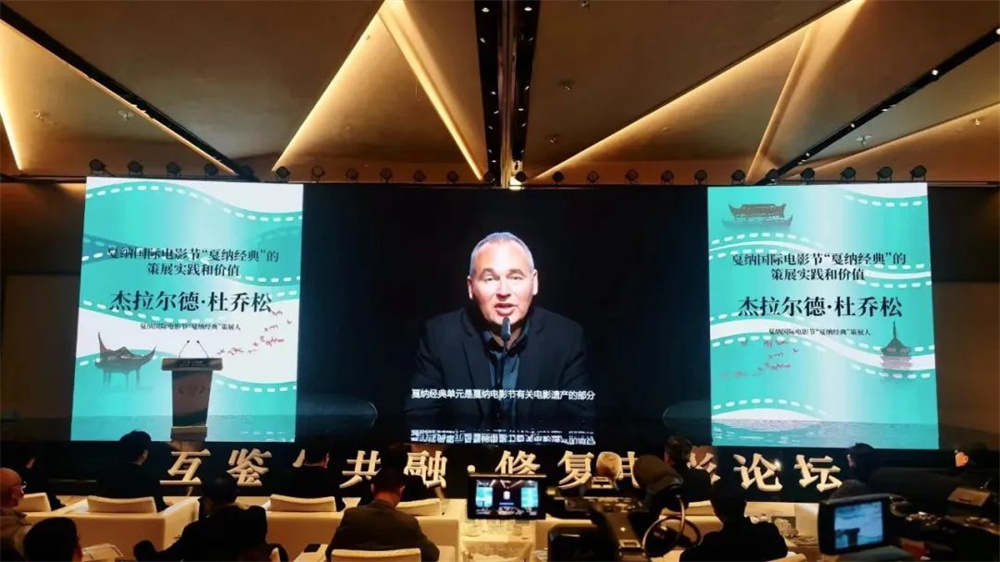
Gerald Dujosson, Curator of the Classics Section of the Cannes International Film Festival
Hong Kong International Film Festival program planner Xie Weilie shared the film selection criteria for the Hong Kong International Film Festival's Restoration Film Unit. "The first kind of situation that excites us is the discovery of important works that are difficult to see or have been lost before; the second is that due to various reasons, the previously kept complete version is incomplete, and now we can see the original creation of the director; The third type is some of the classics on the list, which are a bunch of long-lasting good movies. They have just been restored, and they can give the audience a sneak peek on the big screen. Now the first two cases are relatively rare, and usually the third case up".
Sha Dan, curator of Art Theater of China Film Archive and Beijing International Film Festival, took the classic film "Eternal Wave" as an example. After the world premiere of the restored version of the film at the Beijing International Film Festival, it quickly entered the national theater market for re-screening, earning a box office of more than 3 million yuan, and then entered the daily screening of the film archives again. The trinity cycle of film festivals to industry and back to daily academic screenings. "This cycle is a relatively healthy model. If all restored films, or some of them, can achieve this cycle, it can provide stronger kinetic energy and make film restoration develop better." Shadan explain.
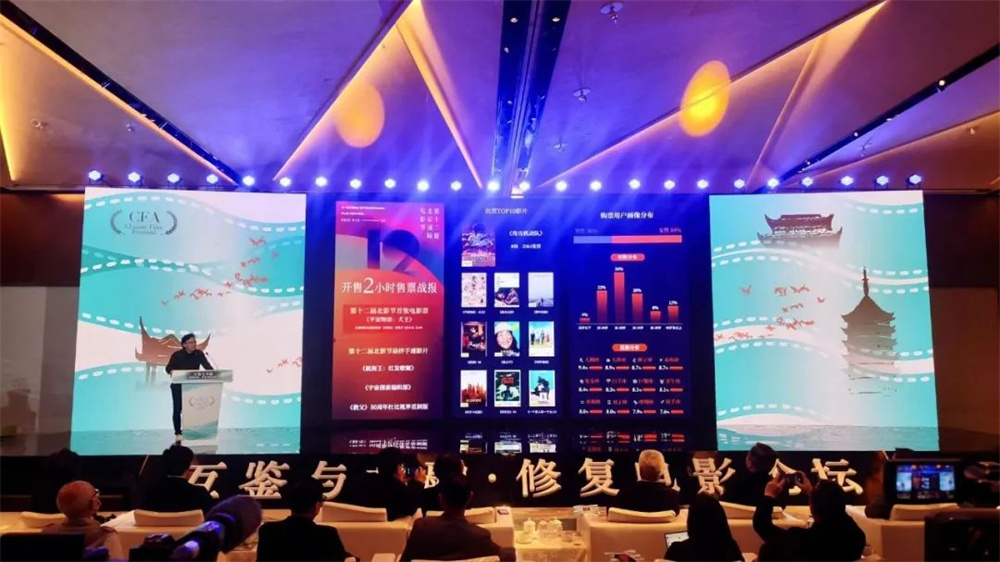
Sha Dan, Curator of Art Theater of China Film Archive and Beijing International Film Festival
"Restore History, Reappear History", Film Restoration Industry Standards Urgently Need to be Established
The unit of "Integration: Integration and Innovation of Image Restoration" is divided into two salon sessions: "Technology Empowers Art - Concept and Standards of Restoration Films" and "Rejuvenation of Classics - Innovative Development and Application of Restoration Images". The "Technology Empowering Art" salon was hosted by Li Tao, Director of the Digital Resource Management Department of the China Film Archive. Robert Byrne, co-author of "Digital Statement" by the International Federation of Film Archives and Chairman of San Francisco Silent Film Festival, Li Ming, former professor-level senior engineer of Beijing Film Academy, Shi Chuan, vice chairman of Shanghai Film Association and professor of Shanghai Theater Academy, Chinese film art Li Zhen, a researcher at the research center, and Jiang Shiyang, a restorer who has just graduated from New York University and joined the China Film Archive, showed and discussed different concepts of film restoration and the diverse perspectives of standard settings, and clarified the key concepts of restoration.
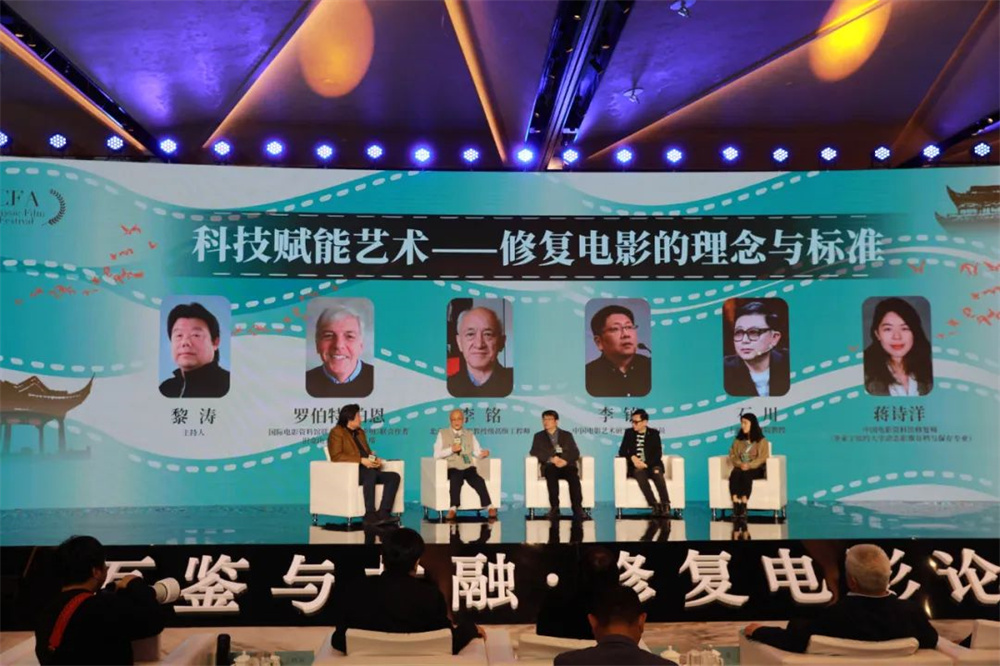
Forum site
With the popularization of digital imaging technology and the reduction of restoration costs, film archives and audiovisual heritage institutions in various countries have more powerful tools to restore, restore and exploit the materials they preserve. According to Robert Byrne, "The aim of a digital restoration is to create a presentation version of the film with the utmost respect for the character of the historical film, with strict respect for ethical considerations at every step of the process."
"Film restorers must be in awe, restore history and reproduce history, otherwise they will not be able to do digital restoration." What happened in the process. If we don’t know the historical background, then it’s very difficult for us to do our job well.”
As the restoration of films has attracted more and more attention from the society, professional terms such as "repair the old as the old" have also been discussed inside and outside the industry. In Li Zhen's view, the original intention of restoring the old as the old is not to add "new" things that do not belong to the film to the film, rather than to preserve the old traces of the film due to decay or use. He said: "Digital restoration of movies is fundamentally different from restoration of cultural relics. Restoration of cultural relics is repaired on the original. Movies are different, and the originals are still stored in the warehouse. Restoring a movie means restoring the original appearance of the film, which is exactly the latest appearance of the film. , in fact, what we want is to repair the old as 'new'."
Ishikawa also agrees with the view that "repairing movies is not repairing cultural relics". He said: "When restoring cultural relics, the original appearance of cultural relics will not be changed. It is really called restoring the old as before. But when restoring movies, we will not change the original, but only restore a copy of the original .So in terms of communication, its use, and its use to meet the consumption needs of modern audiences, such multi-channel or adding some new elements, I think this is allowed.”
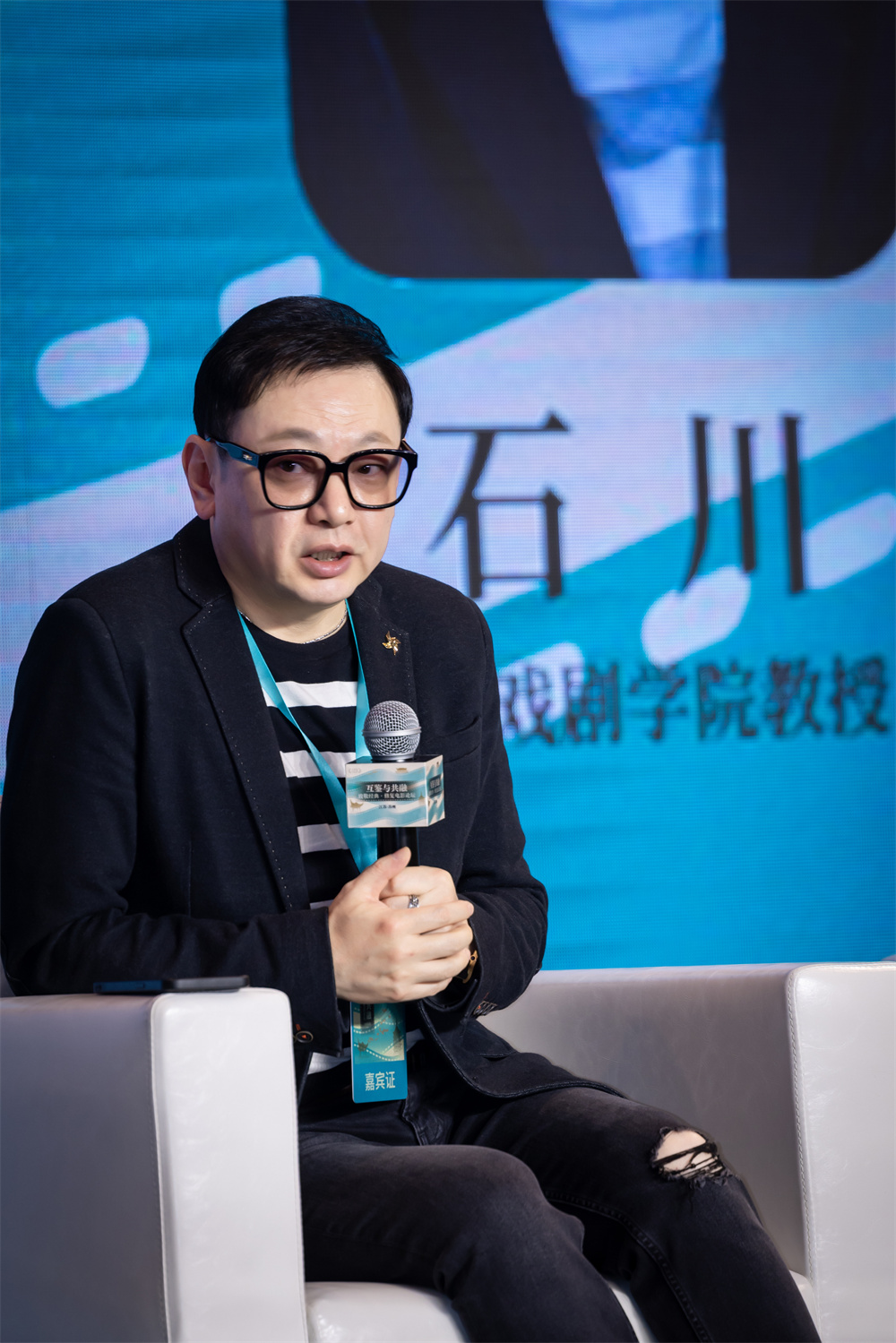
Shi Chuan, vice chairman of Shanghai Film Association and professor of Shanghai Theater Academy
At the end of his speech, Ishikawa put forward two suggestions, "I hope that the China Film Archive will take the lead in formulating industry standards or conventions (including technical standards and professional ethics guidelines) for film restoration; I hope to create China's 'International Exploration on the basis of the Suzhou Restoration Film Festival and Forum. Film Festival'. It is necessary and urgent to establish an international film cultural heritage protection and restoration platform in China, which will allow China to have the right to speak and price in related fields."
North America's largest organization of film archives (the Federation of Moving Image Archivists) stated in the 2010 edition of the "Code of Ethics": "Every effort should be made to restore and preserve cultural relics without changing the original material, and carefully record any restorations. Make decisions during the preservation process, and make decisions that meet the creator’s intention.” Jiang Shiyang extracted three guidelines from it: respecting the creator’s intention, recording the restoration process, and not damaging/changing the original material. She believes: “The restorer needs to use his own experience. , using a collaborative, cross-disciplinary approach, combining technical and artistic considerations, to be a guide in this complex field at work."
Mutual achievements, "AI will not replace manual repair, but more complementary to manual repair"
The "Classic Revival" salon was hosted by Liu Wenning, Planning and Information Office of China Film Archive, Jiang Zidong, Senior Algorithm Engineer of iQiyi, Zheng Wenguang, Associate Professor of Tianjin University of Technology, Zhang Wanying, Senior Product Manager of Volcanic Engine Video Cloud, and Wang Zheng, Restorer of China Film Archive Sun Fan, restorer of China Film Equipment Co., Ltd., respectively introduced the innovative application of artificial intelligence and human-computer interaction in image restoration from the technical level, as well as the differences of image restoration in different media and the exploration breakthroughs in the field of sound restoration.

Forum site
When talking about the relationship between artificial restoration and AI, Jiang Zidong believes that AI will not replace artificial restoration, but rather a process that complements and achieves each other. He summed up a set of working methods in practice, "You can use AI to do a preliminary repair first. After the preliminary repair, it can probably solve 95% or 98% of the problems, and then those such as transparent scratches, translucent Scratches, or mildew stains with large stains, tearing of the screen, etc., which are more difficult to deal with, are handed over to manual repairs for frame-by-frame processing.”
Zhang Wanying introduced the fully automated cloud repair process developed by Volcano Engine. It is said that the process includes multiple modules such as image quality detection, repair enhancement, and encoding output. Since 2021, Volcano Engine has participated in the restoration of hundreds of classic animation films. The 4K restored version of "Havoc in Heaven" re-screened during the Beijing Film Festival in 2022 and the image data restoration work of the Beyond band concert have Volcano Engine. help.
In Wang Zheng's view, AI is still relatively intelligent at present. He said: "At present, when using AI for film restoration, we must educate it well like educating children, and we must tell it what the current lens should achieve. It is expected that various parameter adjustments should be made in advance, so as to make the regenerated 4K images more realistic and real.”
Film restoration is a worldwide issue, and rescuing endangered films is an important measure to protect film heritage. The professional discussion and exchange platform provided by the film restoration forum held in Suzhou will continue to promote the standardization, theorization, and specialization of film restoration, and establish a consensus in the industry, so that films can play a role in promoting the construction of urban civilization and promoting socialist cultural power. Take a more active role.
